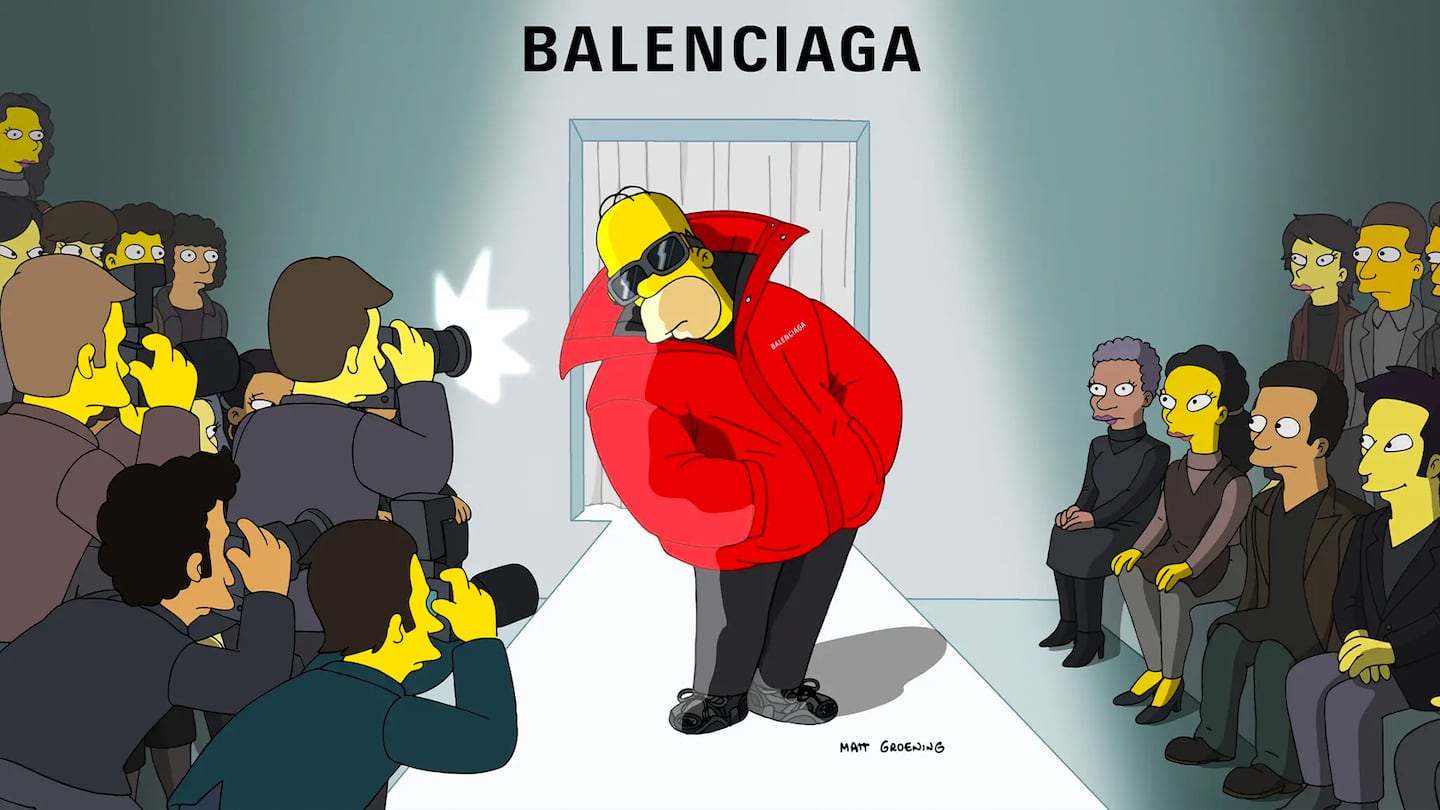
The Business of Fashion
Agenda-setting intelligence, analysis and advice for the global fashion community.

Agenda-setting intelligence, analysis and advice for the global fashion community.

In the notes accompanying Balenciaga’s recent show, creative director Demna explained how “fashion has become a kind of entertainment,” adding that his latest collection would refocus on “the art of making clothes.” It may seem ironic that a designer who has collaborated with The Simpsons is tired of gimmicks. No doubt the brand’s recent scandal had a role in Demna’s change of heart. But the statement gets at a far wider issue that the industry must confront.
Social media has upended our relationship with fashion. While it’s undeniable that platforms like Instagram and Twitter have democratised fashion, bringing more people into the conversation, they have also had catastrophic consequences for the way we treat clothing as a society.
Because social media algorithms prioritise the sensational over the ordinary, the loud over the quiet, brands now grab people by the eyeballs. Some of the most successful designers of recent years have understood this, exploiting social media to keep their brands top of mind. That’s how we ended up with the non-stop churn of drops and collaborations, while fashion week became a marketing circus where Gucci models carried their own heads and Balenciaga cast the rapper Ye to walk in a field of mud.
Essentially, fashion is now about spectacle more than ownership, or as Demna put it, “entertainment.” The problem is that like any form of entertainment, once we’ve had our fun, we quickly move onto the next thing. The age of social media has made clothes disposable — even higher-quality garments now have a cultural lifespan of weeks, not years. They’ve become more like memes than physical goods, moments to take part in online. Because what was Balenciaga x The Simpsons, if not a pop culture moment?
ADVERTISEMENT
This is excellent news for Big Fashion and its bottom line, because as a result we buy more clothes than ever. But it’s terrible for the planet, because, as I’ve argued before, our reckless shopping habits are at the root of fashion’s enormous environmental impact.
This needs to change. As a society, our understanding of sustainability is still in its adolescent years — we know that it’s vitally important, but we don’t always know what to do about it. If we are to stand any chance of cultivating less destructive shopping habits, we need to relearn that clothing is an investment, something to own for more than a moment. We need to champion brands who make high-quality, long-lasting products that will stay stylish for years, not weeks.
I have been working in fashion editorial for almost a decade, and in that time longevity hasn’t been part of the conversation. The industry is currently buzzing about the return of “quiet luxury,” but few have been ready to admit that overall clothing quality has declined over the years. Unless we rethink our relationship with fashion, we’ll be stuck with the same out of control shopping habits.
It wasn’t so long ago that society was hooked on cigarettes, not clothes. Smoking was seen as an essential part of modern life, a product that signalled status and pleasure — sound familiar? Big Tobacco had its time in the sun, but it didn’t last forever. Society soon understood that smoking wasn’t the innocent indulgence we thought it was, governments held the industry to account, and we changed our habits.
Will fashion still be allowed to do whatever it wants, once we understand that it’s grossly irresponsible to consume throwaway clothing as a form of entertainment? Already regulators in the EU look set to make durability a key part of forthcoming sustainability policy.
Demna’s right. Fashion has become entertainment, a novelty to enjoy for a few moments before we move on to whatever’s next. It might seem like the way of the world right now, but nothing lasts forever.
Alec Leach is a strategist and author of “The World Is On Fire But We’re Still Buying Shoes.”
The views expressed in Op-Ed pieces are those of the author and do not necessarily reflect the views of The Business of Fashion.
How to submit an Op-Ed: The Business of Fashion accepts opinion articles on a wide range of topics. The suggested length is 700-1000 words, but submissions of any length within reason will be considered. All submissions must be original and exclusive to BoF. Submissions may be sent to opinion@businessoffashion.com. Please include ‘Op-Ed’ in the subject line and be sure to substantiate all assertions. Given the volume of submissions we receive, we regret that we are unable to respond in the event that an article is not selected for publication.
Disconnecting from fashion’s hype cycle is the most effective way to both curb the industry’s environmental impact and develop a better relationship with our clothes, writes Alec Leach.
The fashion industry continues to advance voluntary and unlikely solutions to its plastic problem. Only higher prices will flip the script, writes Kenneth P. Pucker.
The outerwear company is set to start selling wetsuits made in part by harvesting materials from old ones.
Companies like Hermès, Kering and LVMH say they have spent millions to ensure they are sourcing crocodile and snakeskin leathers responsibly. But critics say incidents like the recent smuggling conviction of designer Nancy Gonzalez show loopholes persist despite tightening controls.
Europe’s Parliament has signed off rules that will make brands more accountable for what happens in their supply chains, ban products made with forced labour and set new environmental standards for the design and disposal of products.